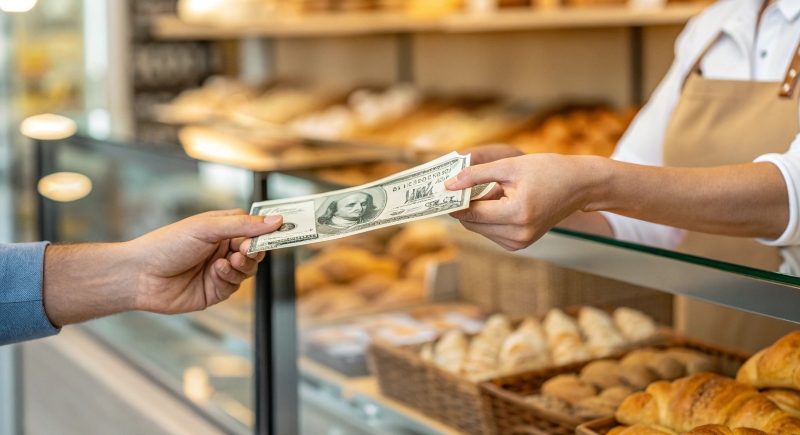Revenge Saving’ Is the New Money Trend and It’s Actually Smart
After a prolonged period of impulse spending and economic stress, a different money habit is emerging. It’s called revenge saving, which means that instead of buying more to feel better, people are cutting back and building cash reserves driven by regret, caution, and the need to feel prepared.
Understanding What Revenge Saving Really Means

Image via Canva/Charlie Pix
Revenge saving describes aggressive saving behavior that often follows a period of unchecked spending or economic stress. The approach has an emotional core and revolves around regaining control through action. Savers push themselves harder than before, which leads to stricter routines or targets.
Martin Lynch, president of the Financial Counseling Association of America, notes that he’s seen similar intensity only among couples racing to afford a home. Many revenge savers redirect funds the moment paychecks arrive, while moving excess cash into high-yield accounts or emergency reserves.
Why The Trend Is Gaining Momentum
The rise of revenge saving reflects changing attitudes toward financial safety and uncertainty. Economic conditions—such as layoffs, inflation, and rising interest rates—have prompted many people to act defensively. Surveys show 71% of Americans now plan to prioritize emergency funds and flexible savings options.
After the surge of “revenge spending” that characterized the years following lockdowns, households are shifting their attention to financial repair. Experts describe it as a pendulum swing toward responsibility after years of indulgence. Others link the trend to social media, where people document “no-buy” challenges and small daily savings victories. The national savings rate also supports the shift: it rose from 3.5% in December to 4.5% by May 2025.
How People Practice Revenge Saving

Image via Wahyutewe/Adwa
The practice often starts with automation and intention. Many set up automatic transfers to move excess income into high-yield accounts, which eliminates the temptation to spend. Meanwhile, others adopt “cash-first” habits, which means they use physical cash for daily expenses to better track where their money goes.
Online, the #NoBuyMonth and #RevengeSaving hashtags show thousands of participants sharing progress and practical hacks. Budgeting apps like Plum, Chip, and Emma also play a role by rounding up small purchases and directing spare change into savings.
According to analysts, these micro-strategies build a sense of accountability and momentum. Research further indicates that maintaining sufficient emergency reserves can reduce financial stress by nearly half.
By gamifying progress—such as matching skipped purchases or setting “revenge numbers”—people are turning restraint into motivation. This approach doesn’t rely on wealth but on consistency. Each deposit, no matter how small, reinforces the idea that security and peace of mind are worth more than impulse buys.